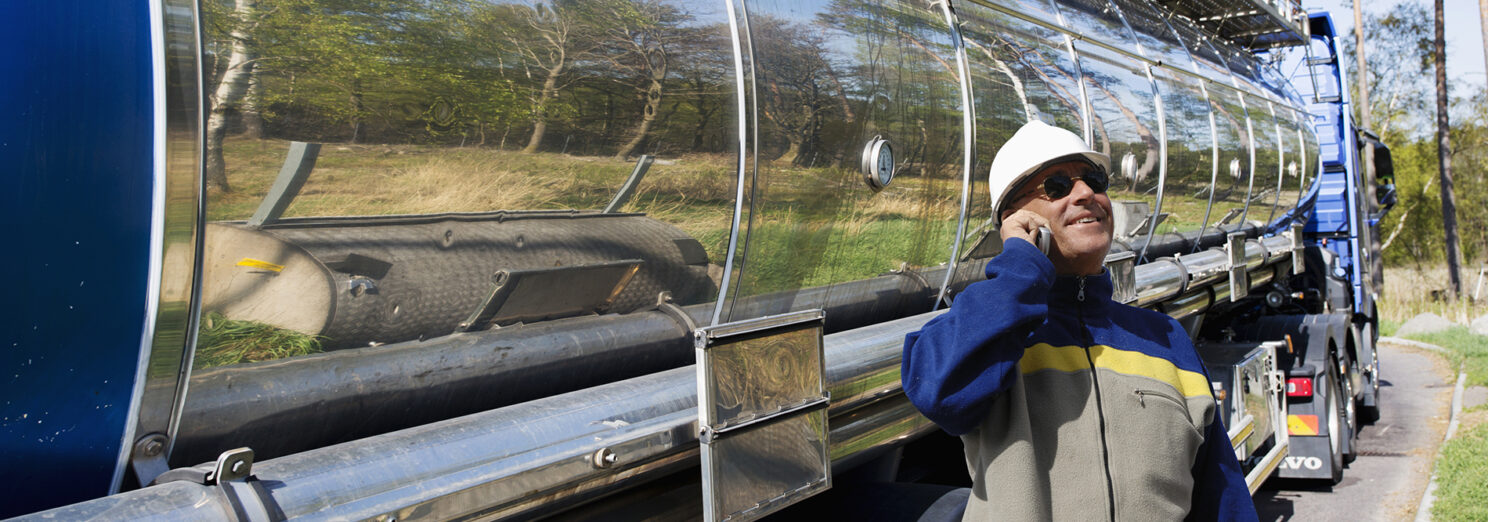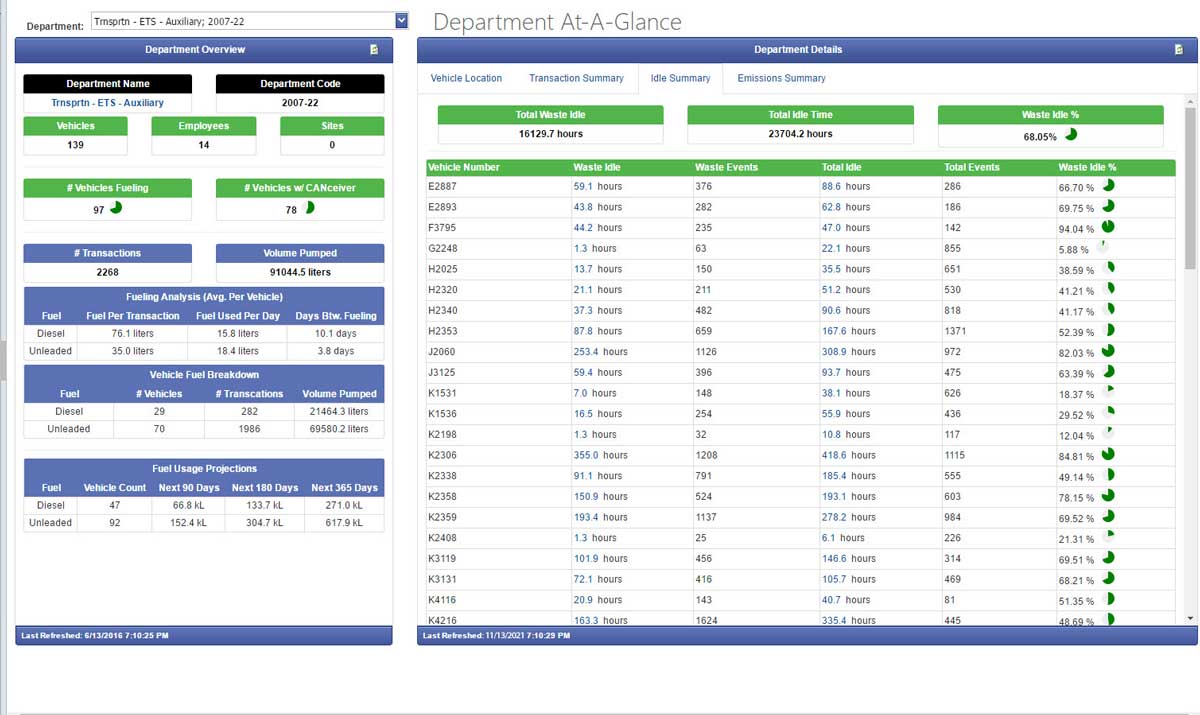
Waste Idle Time
Idle time is the most significant contributor to wasted gas and avoidable pollution. Contrary to popular belief, restarting a car does not burn more fuel than leaving it idling. In fact, idling for just 10 seconds wastes more gas than restarting the engine. This is because frequent restarts are no longer hard on today’s car’s engine and battery, and the vehicle’s catalytic converter warms up much faster when the vehicle is being driven.
Consequences of waste idle time
- Idling a car wastes up to 0.5 gallons of fuel per hour.
- Idling a medium-duty truck wastes 0.4 to 0.6 gallons of fuel per hour.
- Engine idling increases vehicle maintenance costs.
- Engine idling can shorten vehicle life.
Vehicle restart wear is much less costly than the cost of fuel wasted by idling. Reducing vehicle idling will save money with decreased engine wear and gas burned and help lower CO2 pollution.
Common waste idling occurrences
- Running engine while parked for breaks, paperwork, or phone calls
- During pickup and deliveries
- Using drive-through windows
- Leaving engine on in convenience store parking lots
- At railroad crossings
- Using remote starters

Fuel View Idle Time Report
Waste Idle Time Converted to Dollars
Long Haul Truck Idling burns up dollars – study by the US Dept of Energy
With a fleet of 10 medium-duty trucks: If each truck has ten 10-minute idling episodes per workday, using ~0.5 gallons of fuel per hour, and fuel costs $3.50/gallon, the annual cost of idled fuel for the fleet is ~$7,550. Source: https://cleancities.energy.gov/technical-assistance/idlebox/

